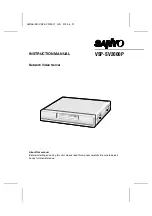
16
Specification Update
BJ4.
B0-B3 Bits in DR6 For Non-Enabled Breakpoints May be Incorrectly Set
Problem:
Some of the B0-B3 bits (breakpoint conditions detect flags, bits [3:0]) in DR6 may be
incorrectly set for non-enabled breakpoints when the following sequence happens:
1. MOV or POP instruction to SS (Stack Segment) selector;
2. Next instruction is FP (Floating Point) that gets FP assist
3. Another instruction after the FP instruction completes successfully
4. A breakpoint occurs due to either a data breakpoint on the preceding instruction
or a code breakpoint on the next instruction.
Due to this erratum a non-enabled breakpoint triggered on step 1 or step 2 may be
reported in B0-B3 after the breakpoint occurs in step 4.
Implication:
Due to this erratum, B0-B3 bits in DR6 may be incorrectly set for non-enabled
breakpoints.
Workaround:
Software should not execute a floating point instruction directly after a MOV SS or POP
SS instruction.
Status:
For the steppings affected, see the Summary Tables of Changes.
BJ5.
Changing the Memory Type for an In-Use Page Translation May Lead
to Memory-Ordering Violations
Problem:
Under complex microarchitectural conditions, if software changes the memory type for
data being actively used and shared by multiple threads without the use of semaphores
or barriers, software may see load operations execute out of order.
Implication:
Memory ordering may be violated. Intel has not observed this erratum with any
commercially available software.
Workaround:
Software should ensure pages are not being actively used before requesting their
memory type be changed.
Status:
For the steppings affected, see the Summary Tables of Changes.
BJ6.
Code Segment Limit/Canonical Faults on RSM May be Serviced before
Higher Priority Interrupts/Exceptions and May Push the Wrong
Address Onto the Stack
Problem:
Normally, when the processor encounters a Segment Limit or Canonical Fault due to
code execution, a #GP (General Protection Exception) fault is generated after all higher
priority Interrupts and exceptions are serviced. Due to this erratum, if RSM (Resume
from System Management Mode) returns to execution flow that results in a Code
Segment Limit or Canonical Fault, the #GP fault may be serviced before a higher
priority Interrupt or Exception (e.g. NMI (Non-Maskable Interrupt), Debug break(#DB),
Machine Check (#MC), etc.). If the RSM attempts to return to a non-canonical address,
the address pushed onto the stack for this #GP fault may not match the non-canonical
address that caused the fault.
Implication:
Operating systems may observe a #GP fault being serviced before higher priority
Interrupts and Exceptions. Intel has not observed this erratum on any commercially
available software.
Workaround:
None identified.
Status:
For the steppings affected, see the Summary Tables of Changes.
















































